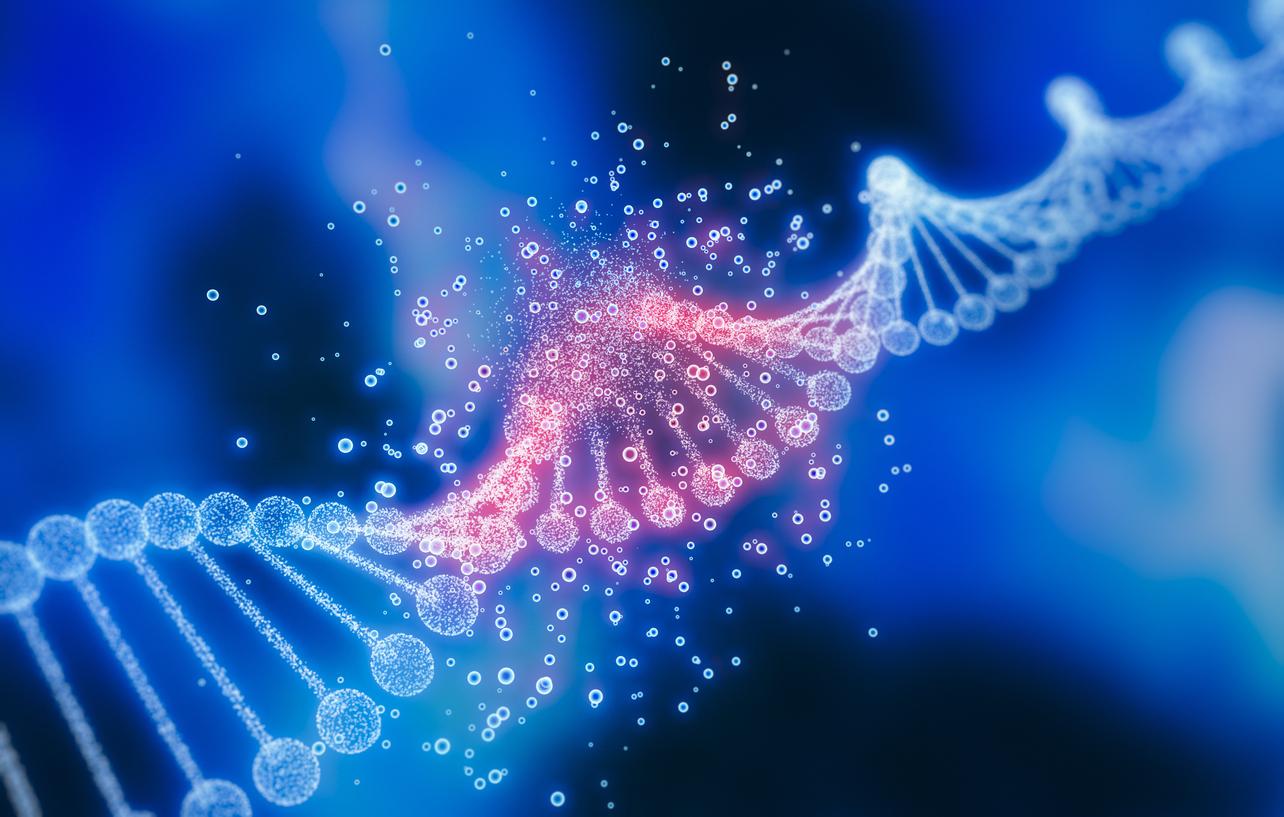Cancer is not always the result of genetic mutations: sometimes, the disease is linked to epigenetic factors, i.e. modifications in gene activity.

- Genetic mutations are considered one of the leading causes of cancer.
- A study shows that they are not involved in all cancers.
- Sometimes the disease is secondary to epigenetic factors or linked to changes in gene activity.
Cancer research is progressing. Until now, scientists thought that it was mainly due to genetic mutations, such as that of the BRCA1 gene in the case of breast cancer. In the magazine NatureCNRS researchers explain having discovered that this is not always the case: certain cancers are solely induced by epigenetic modifications.
Cancer: what is epigenetics?
“Epigenetics is the study of changes in gene activity that do not involve modification of the DNA sequence and can be transmitted during cell divisions.precise Inserm. Unlike mutations that affect the DNA sequence, epigenetic modifications are reversible.” This new discovery could explain why people sharing the same genome, such as twins, do not necessarily have the same cancer.
How to understand the effects of epigenetics on cancer risk?
This discovery was made after a test on Drosophila, flies widely used in genetic studies. The team of French researchers modified the quantities of a kind of protein, called Polycomb. “By modifying the incubation temperature of a particular strain of fruit flies for a few hours, we inhibit the production of these Polycomb proteins, without affecting the genes that produce them.explains Giacomo Cavalli, one of the main authors of the study, to West–France.
They then restarted the activity of these proteins. When the production of these proteins was interrupted, cancers developed in certain flies, but after their reactivation, the dysfunctions persisted. “This phenomenon induces a tumor state which is maintained autonomously and which continues to progress, keeping in memory the cancerous status of these cells even though the signal which caused it has been restored.develop the authors in a communicated.
New perspectives for oncology
This observation gives new perspectives to oncology. “Although studies have already highlighted the influence of these processes in the development of cancer, this is the first time that it has been demonstrated that genetic mutations are not essential for the appearance of the disease.indicate the scientists. This discovery thus pushes us to reconsider the theory which, for more than 30 years, has assumed that cancers are mainly genetic diseases necessarily caused by DNA mutations which accumulate at the genome level..”
















